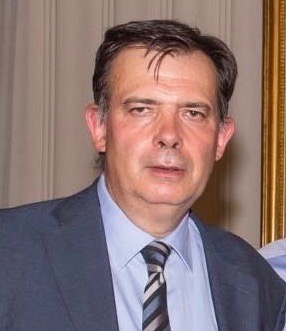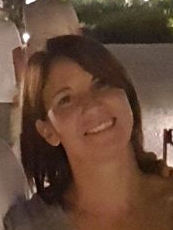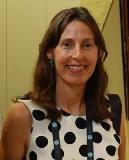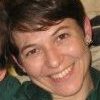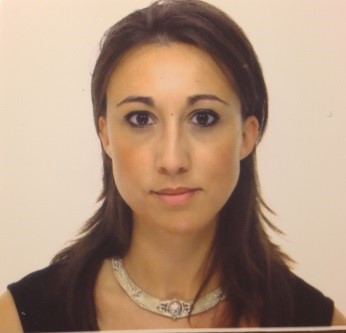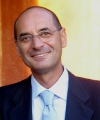Studying at the University of Verona
Here you can find information on the organisational aspects of the Programme, lecture timetables, learning activities and useful contact details for your time at the University, from enrolment to graduation.
Academic calendar
The academic calendar shows the deadlines and scheduled events that are relevant to students, teaching and technical-administrative staff of the University. Public holidays and University closures are also indicated. The academic year normally begins on 1 October each year and ends on 30 September of the following year.
Course calendar
The Academic Calendar sets out the degree programme lecture and exam timetables, as well as the relevant university closure dates..
| Period | From | To |
|---|---|---|
| I semestre | Oct 1, 2018 | Jan 31, 2019 |
| II semestre | Mar 4, 2019 | Jun 14, 2019 |
| Session | From | To |
|---|---|---|
| Sessione invernale d'esame | Feb 1, 2019 | Feb 28, 2019 |
| Sessione estiva d'esame | Jun 17, 2019 | Jul 31, 2019 |
| Sessione autunnale d'esame | Sep 2, 2019 | Sep 30, 2019 |
| Session | From | To |
|---|---|---|
| Sessione estiva | Jul 11, 2019 | Jul 11, 2019 |
| Sessione autunnale | Oct 16, 2019 | Oct 16, 2019 |
| Sessione invernale | Mar 12, 2020 | Mar 12, 2020 |
| Period | From | To |
|---|---|---|
| Sospensione attività didattica | Nov 2, 2018 | Nov 3, 2018 |
| Vacanze di Natale | Dec 24, 2018 | Jan 6, 2019 |
| Vacanze di Pasqua | Apr 19, 2019 | Apr 28, 2019 |
| Vacanze estive | Aug 5, 2019 | Aug 18, 2019 |
Exam calendar
Exam dates and rounds are managed by the relevant Science and Engineering Teaching and Student Services Unit.
To view all the exam sessions available, please use the Exam dashboard on ESSE3.
If you forgot your login details or have problems logging in, please contact the relevant IT HelpDesk, or check the login details recovery web page.
Should you have any doubts or questions, please check the Enrollment FAQs
Academic staff
 maurizio.boscaini@univr.it
maurizio.boscaini@univr.it
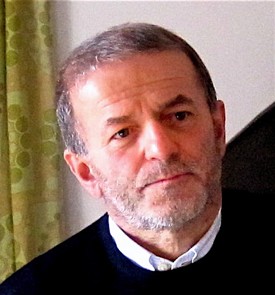
Vallini Giovanni
 giovanni.vallini@univr.it
giovanni.vallini@univr.it
 045 802 7098; studio dottorandi: 045 802 7095
045 802 7098; studio dottorandi: 045 802 7095
Study Plan
The Study Plan includes all modules, teaching and learning activities that each student will need to undertake during their time at the University.
Please select your Study Plan based on your enrollment year.
1° Year
| Modules | Credits | TAF | SSD |
|---|
1 module to be chosen among the following2° Year activated in the A.Y. 2019/2020
| Modules | Credits | TAF | SSD |
|---|
1 module to be chosen among the following| Modules | Credits | TAF | SSD |
|---|
1 module to be chosen among the following| Modules | Credits | TAF | SSD |
|---|
1 module to be chosen among the followingLegend | Type of training activity (TTA)
TAF (Type of Educational Activity) All courses and activities are classified into different types of educational activities, indicated by a letter.
Biochemistry and physiology of plant-soil interaction (2018/2019)
Teaching code
4S02783
Teacher
Coordinator
Credits
6
Language
Italian
Scientific Disciplinary Sector (SSD)
AGR/13 - AGRICULTURAL CHEMISTRY
Period
I semestre dal Oct 1, 2018 al Jan 31, 2019.
Learning outcomes
Aim of the course is to introduce the students to the knowledge of the different plant responses to modifications in soil conditions with particular emphasis on plant nutrition. After a first introduction on the structural/functional characteristics of soil environment the effects of nutrient fluctuations, the presence of natural and anthropic (e.g. biostimulants) organic molecules and microorganisms will be described. All these themes will be approached at molecular, biochemical and physiological levels. We intend to give an integrated view of the dynamics taking place at the rhizosphere involving roots cellular activities and associated metabolic modifications.
Program
-The main global problems of agriculture and the related subjects of scientific research.
- Problems and importance of soil in the environmental and productive context.
- Soil formation and horizons (notes).
-The rhizosphere.
-Soil constituents.
-Rocks (notes).
-Structure and properties of soil minerals.
-Structure and properties of clays.
-Other soil minerals (notes).
-Analyses of particle size and soil texture.
-Soil organic matter: constituents and their chemical properties.
-The functions of soil organic matter.
-Biological effects of humic substances.
-Biostimulants.
-The carbon cycle in the soil and transformation process of organic matter.
-The origin of charges on the surface of solid components.
-Cation and anion exchange capacity.
-Soil pH.
-The soil solution and the concept of nutrient availability
-Movement of nutrient in the soil.
- Membrane transport proteins at the root plasma membrane: structure and functions
-N forms in soil.
-Nitrate and ammonium uptake systems and the role of PM H+-ATPase
-Molecular aspects of nitrate uptake: NRT1, NRT2, NAR e AMT1 genes.
-P forms in soil. Plants responses to P stress. Pht genes.
-Lupin as model plant for the study of P stress.
-S forms in soil. Molecular physiology of sulphate uptake. Sultr genes.
-K forms in soil. Molecular physiology of K+ uptake: AKT e HAK genes.
-Mg and Ca in soil. Biochemical roles of Mg and Ca and molecular physiology of their uptake.
-Fe in soil: reactions and forms. The problem of calcareous soils. Physiological plant responses to Fe stress: strategy I and II. The role of IRT, FRO, H+-ATPase, YS1 and TOM genes.
-Fe and soil humic substances: complexing and interfering actions on acquisition mechanisms.
-Molecular aspects of B, Zn, Mn e Cu uptake systems (notes).
Examination Methods
The exam consists in an oral colloquium both for attending and not-attending students.
The exam is aimed at evaluating the student's knowledge of the whole program of the course paying attention to the depth of acquired knowledge and the ability to systematically connect topics. The mark will be expressed in 30-point scale.
Type D and Type F activities
Modules not yet included
Career prospects
Module/Programme news
News for students
There you will find information, resources and services useful during your time at the University (Student’s exam record, your study plan on ESSE3, Distance Learning courses, university email account, office forms, administrative procedures, etc.). You can log into MyUnivr with your GIA login details: only in this way will you be able to receive notification of all the notices from your teachers and your secretariat via email and soon also via the Univr app.
Graduation
Deadlines and administrative fulfilments
For deadlines, administrative fulfilments and notices on graduation sessions, please refer to the Graduation Sessions - Science and Engineering service.
Need to activate a thesis internship
For thesis-related internships, it is not always necessary to activate an internship through the Internship Office. For further information, please consult the dedicated document, which can be found in the 'Documents' section of the Internships and work orientation - Science e Engineering service.
Final examination regulations
List of theses and work experience proposals
| theses proposals | Research area |
|---|---|
| Dinamiche della metilazione del DNA e loro contributo durante il processo di maturazione della bacca di vite. | Various topics |
| Miglioramento del profilo nutrizionale e funzionale di sfarinati di cereali mediante fermentazione con batteri lattici | Various topics |
| Risposte trascrittomiche a sollecitazioni ambientali in vite | Various topics |
| Studio delle basi genomico-funzionali del processo di embriogenesi somatica in vite | Various topics |
Attendance
As stated in the Teaching Regulations for the A.Y. 2022/2023, attendance is not mandatory. However, professors may require students to attend lectures for a minimum of hours in order to be able to take the module exam, in which case the methods that will be used to check attendance will be explained at the beginning of the module.

